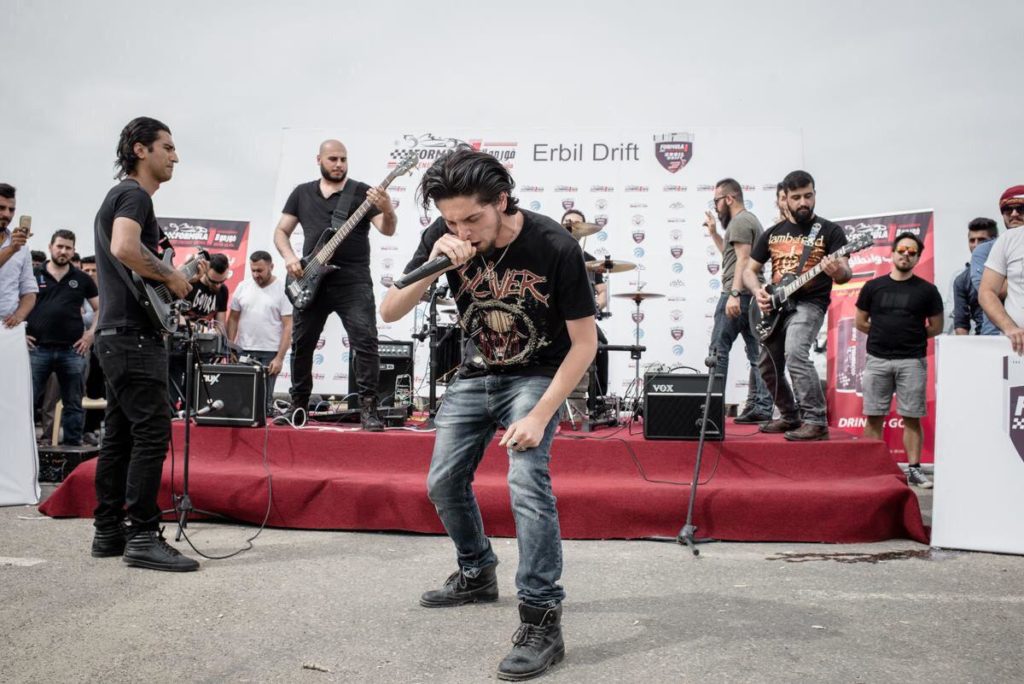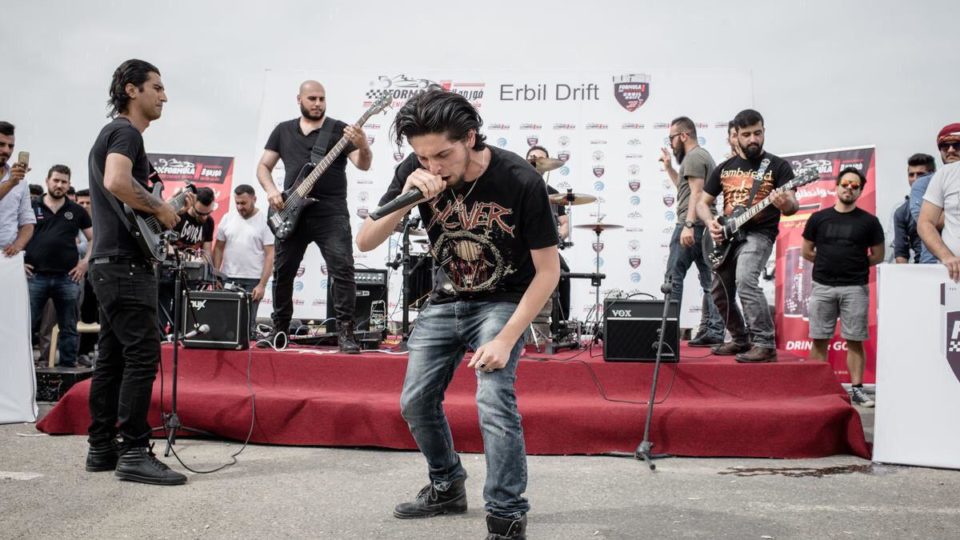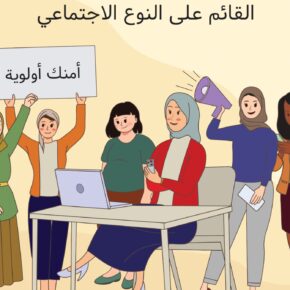Artists persevere in Iraq despite death threats
BY :Adnan Abu Zeed

A recent open-air fashion show in Basra raised the ire of some clerics and Islamist groups. Afterward, residents felt the wrath of one cleric in particular who blamed them for not stopping the show and called their lack of action shameful. He also criticized the state for protecting “this debauchery.”
The administrative committee of the Artists’ Union in Basra had already called June 10 for a halt to all singing and musical activities in the entire province, due to death threats by extremist groups.
In Kirkuk province to the north, members of the heavy metal band Dark Phantom sometimes have a tough time during their concerts and even in their daily lives. In September, one of the members told Fanack music news website, “We have been attacked many times by mosques and on Facebook.” It probably doesn’t help that their music addresses religious and political corruption.
Craftsmen who make musical instruments told Nas news in April about the harassment they face. One said, “The religious [people] don’t like our work.”
Composer and singer Faress Hassan was killed in May in Najaf province, possibly because of the Najaf Sanctity Law, which prohibits music, singing and makeup. A similar sanctity law in Karbala, which is an important religious province for Shiites, went into effect in December.
Sami Naseem, a music composer at the Iraqi Ministry of Culture, said he isn’t surprised by “the attack on art in societies where religious forces are active.” He told Al-Monitor, “Mosul witnessed a similar situation even before the Islamic State [IS] seized it in 2014. The statue of musician Othman al-Mousalli was destroyed, and radicalists threatened to cut off the fingers of Mosul musicians if they played instruments.”
Naseem added, “I challenged this threat, and I performed at the Abi Tamam Poetry Festival that same year.”
He believes the best way to respond to oppression of artistic events lies in “insisting on holding them.”
He said, “The Ministry of Culture also has to revive musical festivals and instill artistic awareness. Leaving the floor to radical forces will only lead to an intellectual void, allowing these groups to pass their radical thoughts to new generations.”
Naseem said music and arts are being banned in “security-vulnerable zones, requiring the state to multiply its economic and intelligence efforts, especially in Basra” and other areas that had been under IS control.
Researcher and musician Star al-Nasr told Al-Monitor about a history of openness and multiculturalism in Basra. “Since the ancient Iraqi civilization, Iraqis have practiced artistic activity. Music has always been strongly present in society,” he noted. Feeling hopeful, he added, “Conservative groups have failed in their attempts to monopolize the cultural scenery and ideology because Iraqi people, and Basra citizens especially, love music and singing, as per our own experience and concern with aesthetics.”
He called on the parliament, government, the Ministry of Culture, the Artists’ Syndicate and humanitarian organizations to “act to halt these violent activities that spread primitive and backward culture in society.”
Author Omran al-Obeidy said, “The threats to musical bands aim to cripple artistic and cultural movement.” He describes Basra as the city of art, saying, “Last March, a show was organized on the stage of the Artists’ Syndicate in Basra, and a plastic art exhibition was held, as well as a calligraphy show, a musical and a concert.” This sends a message, he said, that no agenda can be imposed on the city.
Jabbar Jodi, head of the Artists’ Syndicate in Iraq, spoke with Al-Monitor about attempts to prevent musical activities in Iraq. “The security situation is stable in Basra and the cities of Iraq. As stability is strengthened, the laws and regulations that provide for freedom of opinion and allow the practice of art become more entrenched. The conditions related to artistic activities in the areas liberated [from IS] are improving clearly. The [culture of] freedom is being instilled.”
Meanwhile, legal expert and former judge Ali al-Tamimi confirmed to Al-Monitor that, even though there are some strong reservations about concerts and musicals, especially in religious areas, the law offers protections and the government will step up.
“Article 45 of the Iraqi Constitution emphasizes the role of the state in strengthening and protecting civil society institutions,” he said, noting that threats are subject to the anti-terrorism law because they stir fear and intimidation and threaten social peace.
Interior Ministry spokesman Maj. Gen. Saad Maan stressed the need to distinguish between cultural and artistic activities and, for example, the dubious activities that take place in some nightclubs.
“The ministry will promptly and professionally handle any report of any attack on artistic or cultural activity,” he told Al-Monitor. “This is part of its task to preserve law and order. The ministry’s decision-making is not subject to any influence.”
Musical activities and concerts are on the rise in Iraq, as shown by global surveys as well as videos posted on social media and YouTube. This only agitates some religious and extremist groups to fight against art even more, but their fight won’t be easy, in light of the open and tolerant nature of Iraqi culture.





